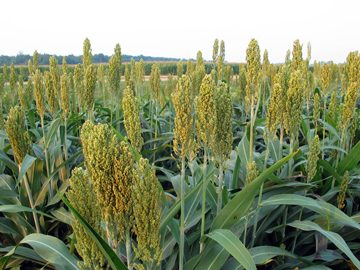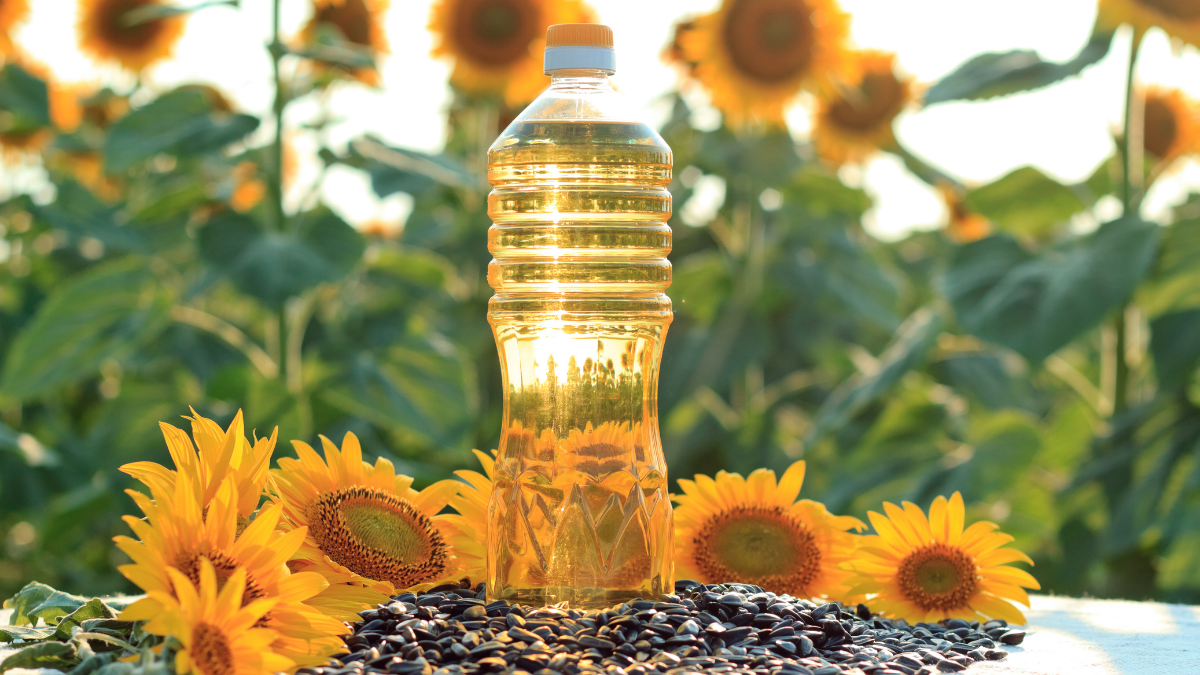 The most important agricultural crops
The most important agricultural crops  HOME
HOME

The most important agricultural crops
Economic Activities:
Agriculture
In Sudan, agriculture plays a crucial role in the country's expected developmental renaissance. It is the leading sector, accounting for approximately 31.6% of the GDP and contributing about 9% of the country's non-oil exports. A significant portion of the population, around 50.23%, is employed in the agricultural field. The total area of Sudan is around 600 million acres, with 200 million acres being arable land. The cultivated area annually amounts to 40 million feddans. The government has implemented policies and regulations to promote investment and foreign trade in the agricultural sector, such as the abolition of taxes on raw agricultural products and export taxes on agricultural commodities. Additionally, support for agricultural inputs and the reduction of financing costs have been implemented. Importantly, there is no specific financing limit for the agricultural sector, encouraging further growth and development. The goals of the agricultural development strategy includes:
1. Achieving food security.
2. Reducing poverty by 15%.
3. Increasing productivity and improving the efficiency of agricultural production and processing.
4. Developing plant, animal, and agricultural exports as renewable natural resources, reducing reliance on non-renewable resources like oil.
5. Developing and protecting natural resources to ensure their sustainability and vitality.
6. Promoting balanced development in all regions, with incentives for settlement in rural areas.
7. Facilitating successful agricultural investment by allocating a significant portion of the program's budget to rehabilitation efforts.
8. Forest output Arabic gum and other varieties of gum are produced, processed, and exported. Production and processing of sawn wood for plywood, compressed wood, furniture, and wood pulp for cardboard, paper, and other products cultivating mulberry trees raising silkworms for natural silk production cultivation of eucalyptus trees with the goal of obtaining essential oils for therapeutic use.
9. Manufacturing natural honey Beehive production and marketing Beehive production and marketing production of cosmetics administration of sting medications and other apiary products.
10. The cultivation of senna and black cumin, among other medicinal and aromatic plants Moreover, fennel, hibiscus, anise, and garlic.
11. The production of certified seeds, fertilizers, pesticides, and burlap packing bags for use in agriculture.
12. Manufacturing of agricultural gear and equipment and agricultural automation.
13. Post-harvest services, folder preparation, sorting and grading facilities, vegetable and fruit packing, dry-cooled transportation, refrigerated tanks and warehouses, and strategic collaboration with ongoing projects:
(1) Aljazeera scheme: 924 thousand hectares in total, surface irrigation system, accessibility to irrigation infrastructure and support services, and crop rotation (cotton, wheat, sorghum, peanuts, and vegetables). The agricultural cycle (sorghum, sorghum, sugar beet) requires collaboration.
(2) Al Rahad Agricultural Project: 126 000 hectares in total. Pumps for irrigation from the Blue Nile and related infrastructure services are readily available. Vegetables, cotton, wheat, peanuts, corn, and other crops are rotated. The crucial collaboration is required in sunflower, corn, and sugar beet crop rotation.
(3) The Suki agricultural project: Irrigation pumps cover 33.5 thousand hectares in total. Blue Nile infrastructure for irrigation and related services are readily available. Maize, groundnuts, cotton, sunflowers, and vegetables are among the crops that are rotated. Crop rotation and maize require collaboration.
(4) Halfa agricultural project: 189 thousand hectares in total. Surface irrigation system Infrastructure and support services for irrigation are readily available. Rotational farming (vegetables, cotton, groundnuts, sorghum, and wheat) the crucial collaboration is required in the cotton, vegetables, sunflower, and maize cycles of agriculture.

1.Gum Arabic
Given that it generates 70–85% of the world's Arabic Gum, Sudan is regarded as the industry's top producer and exporter. In Sudan, this tree is known as Hashab. It is utilized in a number of different industries, including textiles, pharmaceuticals, canned goods, candies, soft drinks, and industrial oils, as well as cosmetics, paints, and other fields.

2.Sesame
Sesame
One of the major sesame-producing and exporting countries in the world is Sudan. In addition to its significance in ensuring human food security and animal nutrition, sesame is crucial for a number of sectors, particularly those using it as a raw material, such as edible oils and flour producers.

3.Hibiscuss
Hibiscus is a plant grown in Sudan that contains chemical compounds such anthocyanins and quercetin as well as 15–30% plant acids. Its flower's pigments are harvested and utilized as a natural coloring for cosmetics, food, and medication.

4.Cotton
Cotton
In addition to the oil produced from its seeds and animal feed, it is one of the most significant fiber plants used in the production of medical cotton and other businesses.

5.Tomatoes
Tomatoes
It is one of Sudan's most significant vegetable crops. It is utilized in daily cuisine and is regarded as a significant and abundant source of vitamins and mineral salts.

6.Sorghum or white corn
Sorghum or white corn
In terms of planted area and overall productivity, the sorghum crop ranks first in importance as food for the vast majority of Sudanese and is one of the most significant in Sudan. In addition to being used to feed animals and poultry, it is one of the most significant agricultural products used in the manufacturing of glucose and starch.

7.groundnuts
It is one of the most significant oilseed crops. It is also used in numerous food sectors. Animals are also fed on the waste from their husks.

8.Sunflower
Sunflower
It is one of the most significant oil crops. Its seeds, which are used to feed poultry and decorative birds, contain a significant amount of frying oil. Additionally, it serves as a beekeeping field.

9.Banana
Banana is a fruit with a delicious taste and rich in starchy compounds that provide the human body with a great energy and activity. It occupies an advanced position in Sudanese trade and represents an important economic pillar. Sudan has enormous potential to develop its production, processing and marketing.
 The most important agricultural crops
The most important agricultural crops  HOME
HOME 








